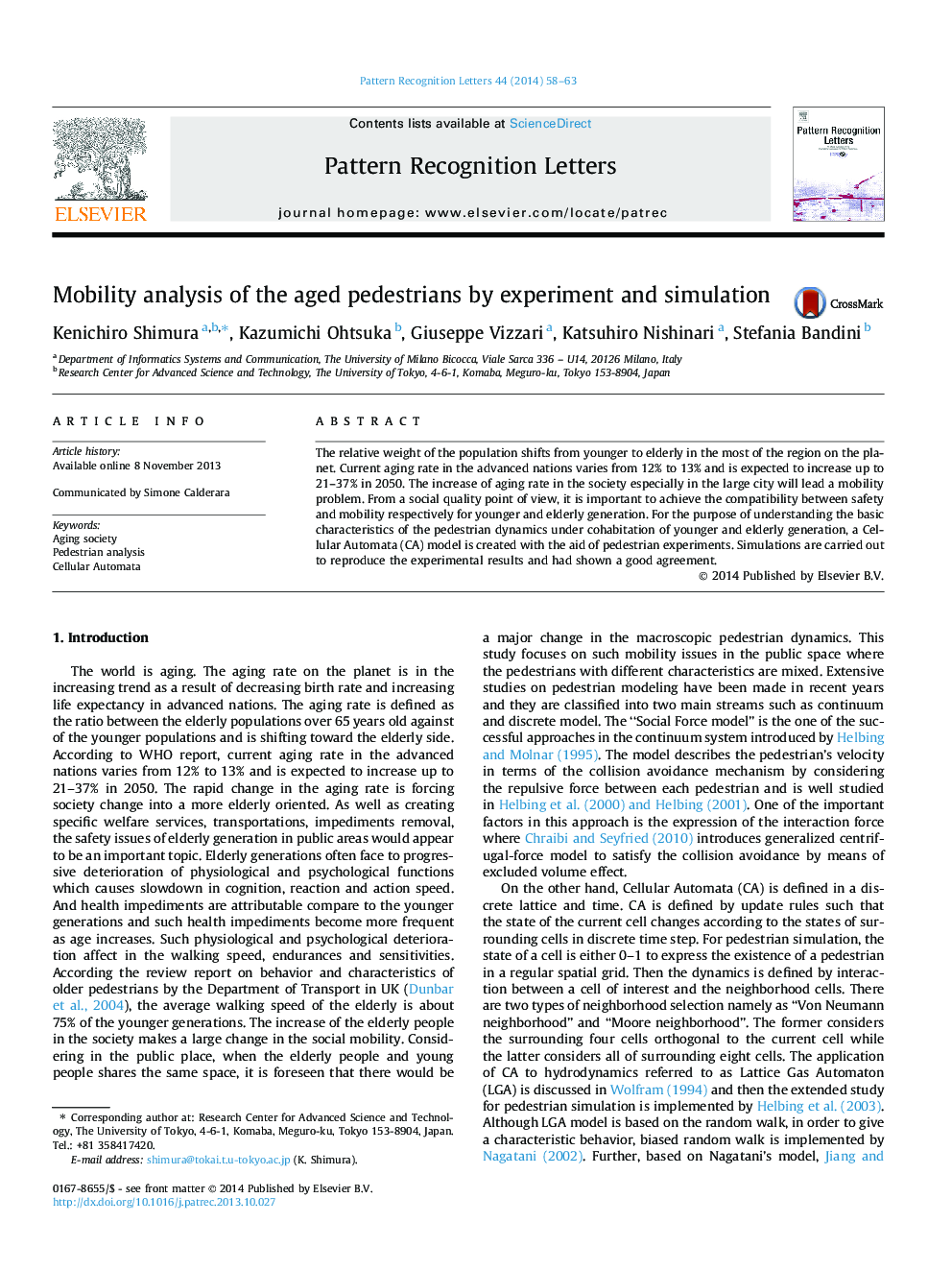| Article ID | Journal | Published Year | Pages | File Type |
|---|---|---|---|---|
| 6941325 | Pattern Recognition Letters | 2014 | 6 Pages |
Abstract
The relative weight of the population shifts from younger to elderly in the most of the region on the planet. Current aging rate in the advanced nations varies from 12% to 13% and is expected to increase up to 21-37% in 2050. The increase of aging rate in the society especially in the large city will lead a mobility problem. From a social quality point of view, it is important to achieve the compatibility between safety and mobility respectively for younger and elderly generation. For the purpose of understanding the basic characteristics of the pedestrian dynamics under cohabitation of younger and elderly generation, a Cellular Automata (CA) model is created with the aid of pedestrian experiments. Simulations are carried out to reproduce the experimental results and had shown a good agreement.
Keywords
Related Topics
Physical Sciences and Engineering
Computer Science
Computer Vision and Pattern Recognition
Authors
Kenichiro Shimura, Kazumichi Ohtsuka, Giuseppe Vizzari, Katsuhiro Nishinari, Stefania Bandini,
